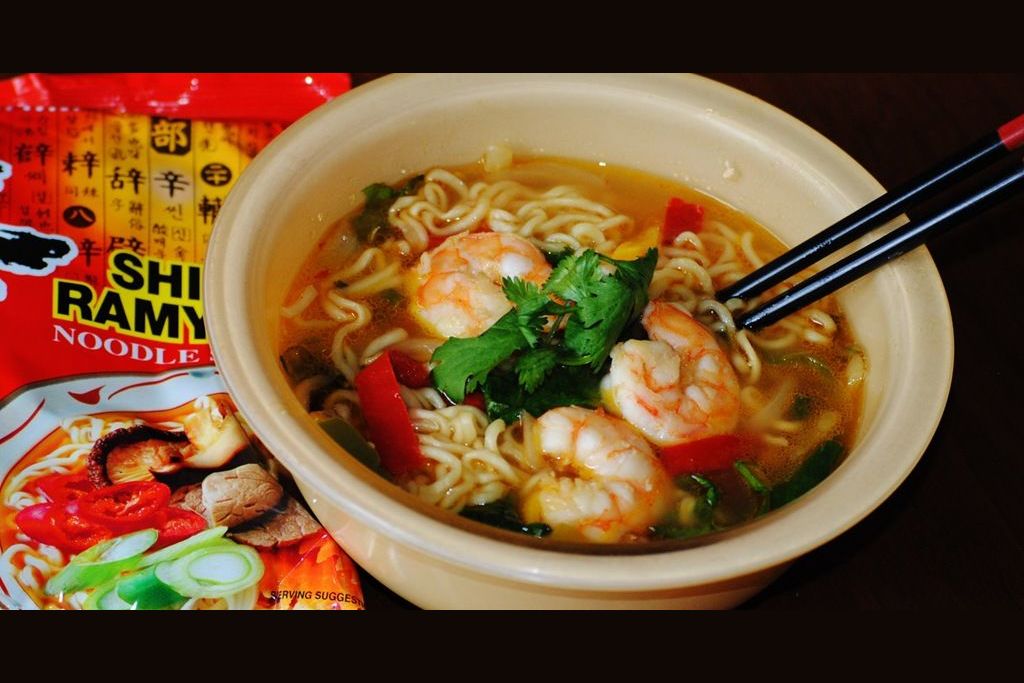Ramen Noodles Pronounced: A Comprehensive Guide To Mastering The Art Of Saying Ramen
Have you ever found yourself struggling to pronounce "ramen noodles" correctly? You're not alone. Many people worldwide hesitate when it comes to saying this beloved Japanese dish's name properly. Whether you're a food enthusiast, a culinary student, or simply someone who loves Japanese cuisine, understanding the correct pronunciation of ramen noodles is essential. This guide will walk you through everything you need to know about ramen pronunciation and its cultural significance.
Ramen noodles have become a global phenomenon, transcending borders and cultures. From instant ramen packets to high-end ramen restaurants, this dish has captured the hearts and taste buds of millions. However, the pronunciation of "ramen noodles" often leads to confusion, especially for those unfamiliar with Japanese phonetics.
In this article, we'll explore the correct way to pronounce ramen noodles, delve into the history and cultural background of ramen, and provide practical tips for mastering its pronunciation. Whether you're a beginner or an expert, this guide will help you confidently say "ramen noodles" like a pro.
Read also:Understanding And Resolving Bg3 Error Code 804
Table of Contents
- Introduction to Ramen Noodles Pronunciation
- History of Ramen Noodles
- How to Pronounce Ramen Noodles
- Common Mistakes in Pronouncing Ramen
- Cultural Significance of Ramen Pronunciation
- Tips for Mastering Ramen Pronunciation
- Ramen Varieties and Pronunciation
- Frequently Asked Questions About Ramen Pronunciation
- Importance of Accurate Pronunciation
- Conclusion and Final Thoughts
Introduction to Ramen Noodles Pronunciation
Understanding how to pronounce "ramen noodles" correctly is more than just a linguistic exercise; it's a gateway to appreciating the rich cultural heritage behind this dish. Ramen noodles pronounced correctly can enhance your culinary experience and show respect for the traditions associated with it.
Why Pronunciation Matters
Pronunciation plays a crucial role in communication, especially when it comes to international cuisine. Mispronouncing "ramen noodles" might not seem like a big deal, but it can lead to misunderstandings or even unintentional disrespect. Learning the correct pronunciation shows your appreciation for the culture and history behind the dish.
History of Ramen Noodles
Ramen noodles have a fascinating history that dates back to the late 19th century. Originating in China, ramen made its way to Japan and evolved into a dish that reflects the unique flavors and culinary techniques of Japanese cuisine.
From China to Japan
The roots of ramen can be traced back to Chinese wheat noodles, which were introduced to Japan during the Meiji period. Over time, Japanese chefs adapted the recipe, incorporating local ingredients and flavors, resulting in the ramen we know today.
How to Pronounce Ramen Noodles
Now, let's dive into the heart of the matter: how to pronounce "ramen noodles." The correct pronunciation is "rah-men noodles," with the emphasis on the first syllable.
Breaking Down the Pronunciation
- Rah: The first syllable is pronounced like the English word "rah," with a short "a" sound.
- Men: The second syllable sounds like "men," similar to the English word.
- Noodles: Pronounced as it is in English, "noo-dlz."
Common Mistakes in Pronouncing Ramen
Mispronouncing ramen noodles is more common than you might think. Here are some of the most frequent errors people make:
Read also:Chris Shipping Revolutionizing The World Of Logistics And Supply Chain
Avoiding Mistakes
- Saying "ray-men" instead of "rah-men."
- Emphasizing the wrong syllable, such as "ra-MEN" instead of "RAH-men."
- Adding unnecessary sounds, like "rah-meen" or "rah-men-ooz."
Cultural Significance of Ramen Pronunciation
Ramen is more than just a dish; it's a cultural symbol that represents Japan's culinary heritage. Pronouncing ramen noodles correctly is a sign of respect for the culture and traditions associated with it.
Respecting Cultural Traditions
By learning the correct pronunciation, you demonstrate your understanding and appreciation of Japanese culture. This small gesture can go a long way in fostering cross-cultural connections and mutual respect.
Tips for Mastering Ramen Pronunciation
Mastering the pronunciation of ramen noodles doesn't have to be difficult. Here are some practical tips to help you get it right:
Practical Techniques
- Listen to native Japanese speakers pronounce "ramen" and mimic their pronunciation.
- Practice saying "rah-men" slowly and clearly, focusing on each syllable.
- Use online pronunciation tools or apps to refine your skills.
Ramen Varieties and Pronunciation
Did you know that there are several types of ramen, each with its own unique pronunciation? From tonkotsu to shoyu, understanding the nuances of each variety can enhance your ramen experience.
Exploring Different Varieties
Some popular ramen varieties include:
- Tonkotsu: Pronounced "tohn-koh-tsoo," this pork-based broth is rich and creamy.
- Shoyu: Pronounced "shoh-yoo," this soy sauce-based broth is savory and flavorful.
- Miso: Pronounced "mee-soh," this variety features a hearty miso broth.
Frequently Asked Questions About Ramen Pronunciation
Here are some common questions people have about pronouncing ramen noodles:
FAQ Section
- Q: Is it okay to pronounce ramen as "ray-men"?
A: While many people use this pronunciation, the correct way is "rah-men." - Q: Does the pronunciation of ramen vary in different regions?
A: Yes, regional dialects in Japan may slightly alter the pronunciation, but "rah-men" is the standard.
Importance of Accurate Pronunciation
Accurate pronunciation is vital for effective communication and cultural respect. When you pronounce "ramen noodles" correctly, you show that you value the traditions and history behind this beloved dish.
Building Cultural Bridges
Language and pronunciation are powerful tools for building connections across cultures. By mastering the correct pronunciation of ramen noodles, you contribute to a more respectful and informed global community.
Conclusion and Final Thoughts
In conclusion, learning how to pronounce "ramen noodles" correctly is an essential step in appreciating this iconic dish. By understanding its history, cultural significance, and proper pronunciation, you can enjoy ramen with confidence and respect.
We encourage you to share this article with friends and family, practice your pronunciation skills, and explore the world of ramen noodles. Your journey into the delicious and diverse realm of ramen starts here!
Don't forget to leave a comment below or check out our other articles on Japanese cuisine. Together, let's celebrate the beauty of food and culture!
References:
Would You Rather 1 Dollar Or 2 Dollars? A Fascinating Look Into Decision-Making
Dale Marks Flight 46: A Comprehensive Look Into The Tragic Event
Madilyn Landry Age: A Comprehensive Guide To Her Life And Career

How Is Ramen Noodles Pronounced?

Ramen Noodles Soy Sauce Flavor Ingredients Sellers

Ramen Noodles WowzaBox Recipe Box